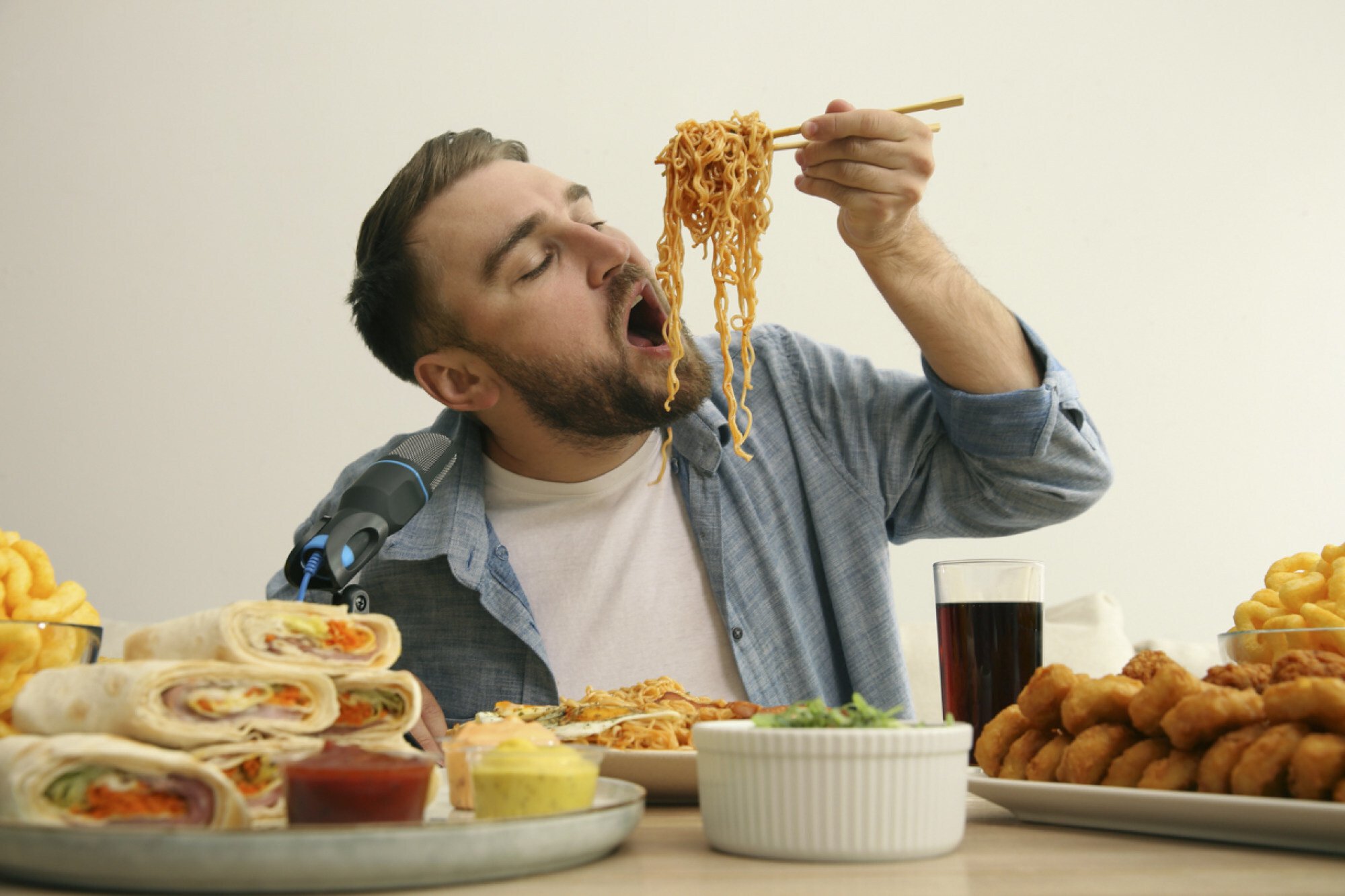
9 intermittent fasting mistakes to avoid: don’t eat too little, drink more water and don’t exercise too much, expert says
- The wellness trend is embraced by celebrities like Kourtney Kardashian for its weight-loss potential, but there are many misconceptions surrounding the practice
- A nutrition expert outlines some of the common mistakes to avoid in adopting intermittent fasting – including eating too much during the ‘eating window’
Intermittent fasting is a health and fitness trend embraced by celebrities such as Jennifer Aniston, Kourtney Kardashian, Scarlett Johansson and Halle Berry, who claim it has helped them shed unwanted weight.
This practice involves entirely or partially abstaining from eating for a set amount of time, before eating regularly again. Many questionable fad diets involve fasting, but proponents of intermittent fasting view it as a healthier alternative to regular dieting.
People generally like intermittent fasting because it is simple, accessible and you don’t need to count calories or buy special foods.

Still, people make common mistakes when doing the regime, says Dr Mia Holm, manager of the Lifestyle Management Centre at Hong Kong Adventist Hospital – Stubbs Road.
The expert on plant-based nutrition confirms there are misconceptions surrounding the practice – and stresses that fasting is not for everyone. For those considering adopting an intermittent fasting lifestyle, she outlines the main pitfalls to avoid.
‘It isn’t a diet, it’s a lifestyle’: the benefits of intermittent fasting
1. Using it as an excuse to eat unhealthy food
2. Eating too little during the ‘eating window’
Fasting is not so much about restricting calories (the amount) as it is about restricting your eating window (the duration). “Eating too little – I’m talking less than 1,200 calories per day – during your eating window could reduce your muscle mass and slow down your metabolism,” Holm warns.

3. Drinking beverages with more than five calories outside the ‘window’
Intermittent fasting? It worked for one wellness consultant but not another
4. Not drinking enough water
Early in a fast, as you burn through glycogen (a form of sugar stored in the body), you’ll actually release water into your bloodstream. But after your glycogen stores are depleted, deeper into your fast, your body won’t have those stores of carbs and water to fall back on, so extra hydration becomes increasingly important.

5. Eating dinner too late
“Studies have shown that eating late dinner will increase the risk of type 2 diabetes, cardiovascular disease and obesity,” says Holm. “On the other hand, studies have shown that skipping dinner [eating two meals a day during daylight] shows an improvement in blood pressure, reduces markers of cardiovascular risk and regulates inflammation in men.”
A decade of intermittent fasting – see how one health coach did it
6. Doing prolonged fasting too often
“I’m talking about 36, 48, 72 hours or longer fasts here. These types of fast should only be done infrequently,” Holm says.
Occasional adaptive stress from fasting is good for our bodies because it activates certain pathways that repair DNA and trigger autophagy – the body’s way of cleaning out damaged cells to regenerate newer, healthier ones. But fasting for too long, too often will put too much stress on our bodies.

7. Eating too big of a meal after fasting
This is especially a big mistake if you do a longer fast, say for more than 24 hours. Eating a big meal immediately after a long fast will cause your blood glucose and insulin levels to spike.

8. Trying to do too much at the same time
9. For women, fasting one week before menstruating or fasting while trying to conceive

“One week before a period is when the level of progesterone begins to drop. If you do a prolonged fast, your progesterone levels will drop even lower.
For this reason, it is advised not to do a long fast one week before having a period.

Intermittent fasting will also affect attempts to conceive.
“Progesterone plays important roles in the menstrual cycle and in maintaining pregnancy in the early stages. Prolonged and frequent fasting could decrease women’s progesterone levels and make it more difficult to conceive.”

